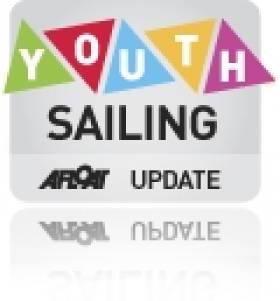Displaying items by tag: RS:X
Windsurfing Champion Hits Out At World Sailing’s Retention Of RS:X For Paris 2024 Without Sea Trials
The dinghy classes are not the only subjects of open letters to World Sailing chiefs as they meet in London this weekend, with Dutch windsurfer Dorian van Rijsselberghe issuing his own missive criticising the retention of the RS:X class without holding sea trials.
Sail World reports on the letter from the current world and Olympic champion in the class, who argues that World Sailing has on its hands “a great opportunity to re-invigorate the sport of sailing and windsurfing and to inspire the next generation” were it to trial alternative classes such as windfoils alongside the RS:X, which itself replaced the Mistral in Beijing 2008.
“Despite the dominant position [my country the Netherlands holds] in the RS:X, I believe it is our duty not only to foster talent and bring it to the top – but in fact that the overriding duty is to act in the best interests of the sport and to ensure its future, prosperity and continued success,” he writes.
Van Rijsselberghe also hit out at the perceived monopoly in manufacturing for the class and is effect on costs for windsurfers, while also highlighting the dearth of youth competitors in the Netherland and New Zealand, historically among the biggest windsurfing nations.
Sail World has much more on the story HERE.
Last Call For RYA Youth Nationals Entries
The countdown to the 2015 RYA Youth Sailing National Championships is well underway, with just six days left to enter the premier annual event for the UK's young sailing talents.
Competitors have up until Sunday 22 March to sign up for the regatta (4-10 April), where racing will take place on the famed Olympic and Paralympic waters of Weymouth Bay and Portland Harbour, and where RYA Youth National Champions will be crowned across six classes.
Racing will take place for under 21-year-old boys in Laser Standards, girls and boys in Laser Radials and Neil Pryde RS:X 8.5 windsurfers, and for all-boy, all-girl or mixed crews in 420s, 29ers and Spitfire catamarans.
The event also doubles up as a selection event for the British Youth Sailing Team to compete at the EUROSAF Youth European Championships in Brest, France (26 July-2 August), and will determine invitees for the British Youth Sailing Team Selection Event for the ISAF Youth Sailing World Championships, to be held at Hayling Island Sailing Club from 29-31 August 2015. The 2015 ISAF Youth Worlds is to be staged in Langkawi, Malaysia, from 27 December-2 January.
To enter the event and for further information click here






























































